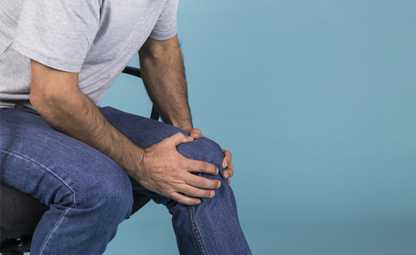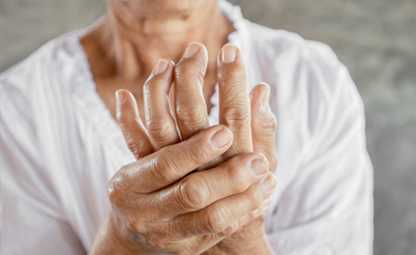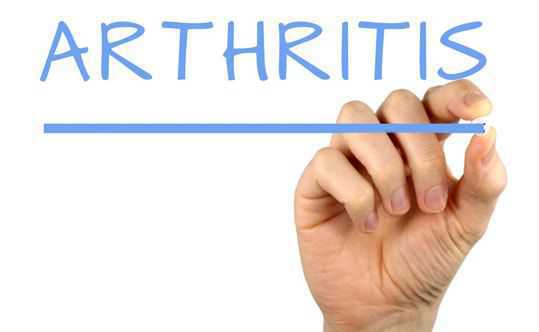Arthritis is a common term used in daily life and refers to any disorder affecting the joints with a group of symptoms including joint pain, swelling, warmth, redness in joints, stiffness in joints, and decreased range of motion of affected joints. The suffix ‘itis’ in arthritis signifies inflammation.
Divided in more than 100 types, certain types of arthritis can affect other organs of your body too. Onset of arthritis in your body can be gradual or sudden. It is more common in women than in men.
- The most common types of arthritis are osteoarthritis, also known as degenerative joint disease and rheumatoid arthritis which is an autoimmune disorder often affecting the hands and feet.
- Osteoarthritis can affect you according to your age and targets your finger knees and hips and 3.8% of people around the world suffer from this type of arthritis while the percentage of people affected by rheumatoid arthritis remains at 0.24% in world.
- Gout is associated with persistent elevated uric acid levels in blood with combination of diet and genetic factors and its incidence is 1% to 2% in the world. Pseudo gout or calcium pyrophosphate dehydrate crystal deposition disease occurs usually in older adults and most commonly affects the knee joint.
- Other types of ‘arthritis’ or joint diseases include gout and pseudo-gout, septic arthritis, ankylosing spondylitis, juvenile idiopathic arthritis, still’s disease and many more.
- Ankylosing spondylitis involves long term inflammation of joints of your spine. Other joints such as shoulder joints or hip joints Back pain, stiffness of the affected joints worsening with the progression of disease are the common features of arthritis. It may also extend its affect on your eyes and bowel. Diagnosed mainly on the basis of radiological changes in sacroiliac joints and spine, it affects between 0.1% to 0.8% people in the world.
- Juvenile idiopathic arthritis (JIA) is the most common form of arthritis in children and adolescents. Being an autoimmune and non-infective inflammatory joint disease, JIA affects about one in 1000 children per year in a year.

Arthritis can also affect you if you are already suffering from a pre-existing medical condition which predisposes your body to arthritis. Such type of arthritis is considered secondary to the main disease and includes psoriatic arthritis (arthritis along with skin condition psoriasis), reactive arthritis (arthritis triggered by infection in other part of body), Secondary Sjorgen’s Syndrome (rheumatoid arthritis with extreme dryness of mouth and disease), arthritis secondary to celiac disease, and non- celiac gluten sensitivity, and many more.
Symptoms of Arthritis
If affected by arthritis, you may suffer from a varied range of symptoms which include pain, swelling, and stiffness in and around the joints. Your stiffness may be worse in the morning. In some cases, your stiffness may worsen after the use of joint. You may experience inability in walking and using your hand, malaise and fatigue, weight loss, poor sleep, muscle aches, tenderness and difficulty in moving the joint. Loss of flexibility and decreased aerobic fitness in the patient become area of concern.
What is more disheartening is arthritis is a very important cause of disability and deformity of joints. When you or your dear one suffers from decreased mobility and become dependent on other people even for basic daily work, it results in absenteeism from work, difficulty in remaining physically active, stress, depression and fear of worsening of existing symptoms. Along with causing emotional trauma to you, these symptoms contribute to an increased risk of obesity, high cholesterol level and increases vulnerability to heart disease.
Diagnosis:
To diagnose arthritis, the physician would look for particular symptoms which indicate a certain type of arthritis. For example, a patient suffering from rheumatoid arthritis is generally worse in morning and associated with stiffness lasting over 30 minutes. Osteoarthritis on the other hand tends to be associated with morning stiffness which eases relatively quickly with movement and exercise.
Your health practitioner would further advise you X-Rays and blood tests to reach the type of diagnosis. Rheumatoid factor, antinuclear factor, extractable nuclear antigen and specific antibodies may indicate specific types of arthritis.
Arthritis Management:
Manage your health at your home first. Lose your weight if you have those extra pounds as extra weight puts more pressure on your joints especially on your knees, hips, and feet. Get your exercise mode on. Regular movements would help you in maintaining flexibility of your joints. Low impacting exercises such as water aerobics or swimming or the exercises specifically advised by your physiotherapist should be preferred. Weight bearing exercises such as walking and running should be avoided. To lessen your joint pain, swelling and inflammation, wrap a gel ice pack or frozen vegetables in a towel and apply it to your affected joint. Long warm showers or bath in morning can relieve you from your stiffness.
Along with the physical management comes the dietary management in arthritis. Omega 3 fatty acids found in fish, flax seeds, walnuts, chia seeds, brussels sprouts and gamma- linolenic acid found in seeds of evening primrose, black currants should be included in your diet.
What does Preserva Wellness offer for arthritis?
To provide relief to the traumatizing symptoms of arthritis, Preserva Wellness offers ‘Preserva Arthrogold Oil’ and ‘Preserva Arthrogold Tablets’.
Based in sesame oil, ‘Arthrogold Oil’ is the most potent pain relieving oil in Ayurveda providing immediate relief in pain in cases of arthritis, spondylitis, back pain, migraine and other bone/muscular inflammations. It is the perfect blend of the purest forms of extracted oils from 17 herbal ingredients including aloe vera, olive oil, nirgundi, punarnava, ginger, akarkara, rasna, peppermint, camphor, sesame oil, winter green oil, eucalyptus oil, errand oil, turpentine oil, ajwayan oil, clove oil, haldi oil, cinnamon oil, and nutmeg oil. ‘Preserva Arthrogold Oil’ h and has been formulated by using both cold and hot techniques
The herbs work in combination to heal swelling and spasms, provide flexibility to joints and improve their mobility, relieve joint stiffness, enable quick penetration in skin providing faster relief. It also acts as an analgesic and anti inflammatory and provides relief in backache, pain in legs, improves blood circulation, reduces muscular pain, myalgia, rheumatic pain and swelling, sciatica, gout.
The other pure herbal formulation by Preserva Wellness for the arthritic patients are ‘Preserva Arthrogold Tablets’ with a unique and clinically tested formulation of shallaki, rasna, Ashwagandha, black pepper and turmeric, each in the correct quantity. The tablets help in rejuvenating cartilage formation and fluids around the joint, improving grid strength, recovering from ankylosing spondylitis, healing joint pains and inflammation, relieving morning stiffness, muscular sprain, gout and sciatica.
Boswellic acid in shallaki shifts protects bone and blocks the inflammatory reactions in acute and chronic inflammations. Curcumin and Turmeric reduce pain, inflammation and stiffness associated with all kinds of arthritis.
Rasna has anti arthritic activity with its particular effects in improvement of joint pain, inflammation. It is also an anti pyretic and analgesic and rejuvenates the fluid around the joint.
Ashwagandha is anti inflammatory and pain reliever in arthritic patients. It reduces the swelling and prevents bone degeneration and energises the patient
Black pepper has piperine extract which is anti inflammatory, anti arthritic and relieves pain originating from stimulus by sensory neuron. Along with it, black pepper improves digestion and aids in improving absorption of turmeric and curcumin by the body.
‘Preserva Arthrogold Oil’ and ‘Preserva Arthrogold Tablets’ are thus highly effective in arthritis of any type, whether it is acute or chronic, back pain, sciatica and tendinitis.






